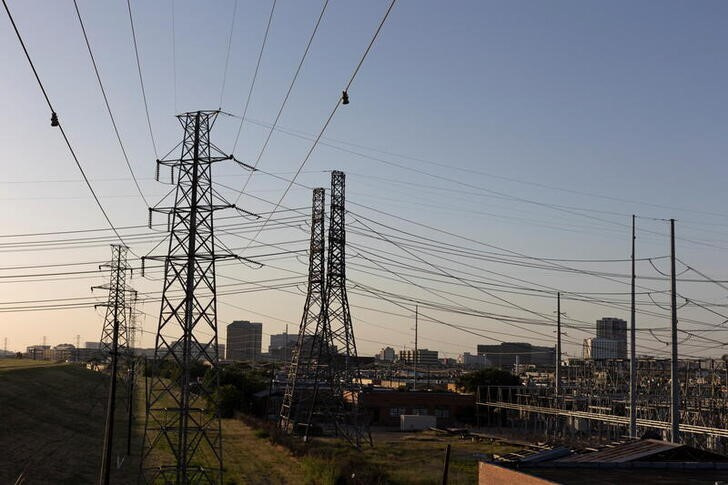By Timothy Gardner
WASHINGTON (Reuters) -The White House on Tuesday reformed the U.S. environmental review process for major projects that officials said would speed up approval of anything from power transmission from wind and solar farms to semiconductor manufacturing.
The reforms are the second and final phase of adjustments to the National Environmental Policy Act, or NEPA, by the administration of President Joe Biden, a Democrat. It was in response to an overhaul of the bedrock environmental law by former President Donald Trump, a Republican, in 2021.
NEPA, a 1969 law that requires environmental reviews for major projects, is a frequent focus of litigation that can delay construction for years.
The White House's Council for Environmental Quality said the reforms bring efficiencies to reviews including clear one- and two-year deadlines for federal agencies, page limits, and tasking lead agencies with coordinating the process.
It also creates ways for agencies to establish the fastest and most common form of environmental review, known as categorical exclusions, such as for transmission lines in areas where the land has already been disturbed and does not require more clearing of trees and habitats.
"We are making reforms in this rule that will help speed infrastructure and permitting, but without losing sight of the environmental and health benefits we need to protect," Brenda Mallory, the chair of the CEQ, told reporters.
The reforms build on initial work to reform the NEPA process finalized in 2022, when the White House began to reverse Trump's overhaul. Those changes required federal agencies to consider the direct, indirect, and cumulative impacts of proposed projects or actions, including a full evaluation of climate impacts.
Republican lawmakers criticized the reforms, saying they favor projects the Biden administration believes will help its climate policy.
"The White House continues to say it is in favor of making it easier to build things in America while at the same time imposing more and more regulations that will do the opposite," said Senator Shelley Moore Capito of West Virginia, which is rich in coal and natural gas.
In response to the complaints, an administration official told reporters the White House is meeting with federal agencies starting this week "about what the new material encompasses and how we're going to make sure that it does not undermine our overall goal to have the projects occur more quickly."

Environmental campaigner Christy Goldfuss, executive director at the Natural Resources Defense Council praised the changes, saying Trump had weakened NEPA.
"It is a relief to finally see it revitalized," she said.